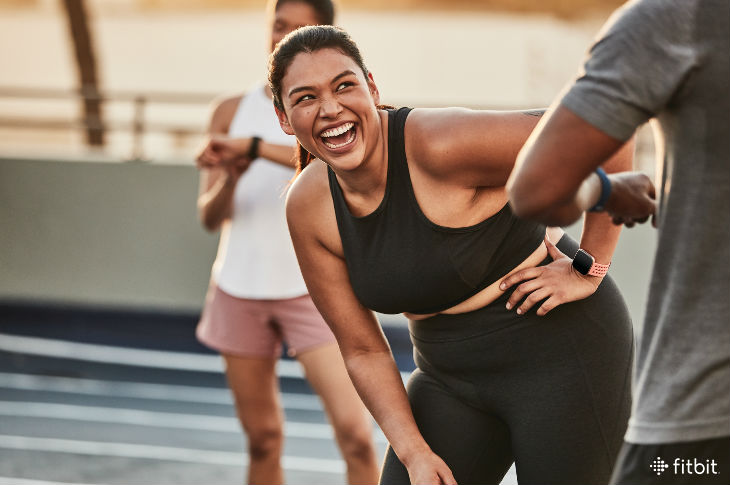
A growing number of food manufacturers and restaurants offer vegan choices, making it easier than ever to follow a vegan lifestyle, which encourages a diet rich in fresh produce, nuts, legumes, whole grains, and healthy plant oils. However, going vegan is more than simply cutting out all animal products, and if you’re very active, it’s important to make choices that will support your intense workouts.
“There has never been a better time for someone to be vegan than right now,” says David Rogerson, a sports nutritionist at Sheffield Hallam University in England. “[But] vegans need to be informed and pay attention to their dietary choices in order to ensure that their nutritional needs are met.”
Research has found that vegans tend to consume less calories, protein, fat, vitamin B12, and calcium than omnivores. They do however tend to get more fiber, antioxidants, and phytochemicals. Nevertheless, vegan diets can be just as good at sustaining recreational runners as those of meat eaters.
“Well-planned vegan diets are packed full of health-promoting plant foods,” says Heather Russell, RD, a dietitian with the UK-based Vegan Society. “It’s possible for athletic individuals to thrive without animal products. Eating well enables them to train hard and recover quickly.”
Three percent of Americans identify as vegan, according to a recent Gallup poll. So, if you’re vegan and you’re training for a race, team sports, or your new personal best, it’s key to pay closer attention to these nutrients in your diet.
Protein
This macronutrient helps with muscle repair, growth, and recovery. “Some of the best sources are legumes such as lentils and black beans; soy products such as tofu and tempeh; whole grains like oats and whole-grain breads; and quinoa, which is a seed,” says Rogerson. Nuts and seeds are also good choices. “[They] can be a way to add to protein intake without adding a lot of bulk to the diet,” says Reed Mangels, PhD, RD, nutrition advisor to the Baltimore-based Vegetarian Resource Group.
Certain plant-based milks are also high in protein. “Using soy or pea milk is helpful because they contain much more protein than other varieties,” says Russell. “And the quality of soy protein is similar to that of the protein in meat and dairy.”
Omega 3 Fatty Acids
Fat is an important energy source that helps your muscles function properly. Experts recommend that vegan athletes consume a mix of healthy fats, including heart-healthy omega-3 fatty acids. Fish are often touted for being rich in omega-3’s, but several vegan foods also contain this fat. “The omega-3 fatty acid called alpha-linolenic acid is essential, so it’s important to have sources of this nutrient,” says Mangels. “Good sources include flaxseed and flaxseed oil and walnuts and walnut oil. Additional sources are chia seeds, soybeans, canola oil, and tofu.”
If you don’t get enough omega 3 fats from whole-food sources, supplements are available. “Consider supplementing with an algae-based DHA product,” Rogerson says.
Vitamins and Minerals
Vegan diets tend to be lacking in these three essential micronutrients:
Vitamin B12: There are no plant-based sources of B12, which is essential to make red blood cells, nerves, and DNA, so vegans may not get enough. Fortunately, some breads, cereals, and meat substitutes are fortified, and supplements are available.
“Good sources of vitamin B12 for vegan athletes include fortified foods such as plant milks, nutritional yeast, and meat analogs [or alternatives],” says Mangels. “Be sure to check the label, as not all brands contain vitamin B12. Many cereals that are fortified with vitamin B12 are also fortified with vitamin D.”
Vegans should note that not all vitamin D supplements are vegan, because the source of vitamin D in those supplements is lanolin, which comes from sheep’s wool.
Iron: Getting enough iron is important for athletes because deficiencies can impact your energy levels and performance.
“Good sources of plant protein tend to be iron-rich, too. Kale, raisins, whole grains, and fortified breakfast cereals also provide iron,” says Russell. “Absorption of this nutrient can be boosted by adding a source of vitamin C to meals, such as bell peppers, broccoli, cabbage, tomatoes, kiwifruit, citrus fruits, or pineapple.” Legumes and tofu are also great options.
Calcium: This mineral is important not only for your bones, but for muscle contractions, brain function, and blood pressure.
“Calcium sources include green vegetables, like kale, collards, turnip greens, bok choy, and broccoli, as well as calcium-set tofu and calcium-fortified plant milks,” says Mangels.
Personalizing dietary needs
Everyone needs slightly different amounts of macro- and micronutrients in their diets based on age, gender, and activity levels. If you have questions about what or how much to consume, meet with a nutrition professional who works with vegans. “A registered dietitian who is versed in sports nutrition and vegetarian nutrition would be helpful in evaluating dietary adequacy and making recommendations,” says Mangels.
This information is for educational purposes only and is not intended as a substitute for medical diagnosis or treatment. You should not use this information to diagnose or treat a health problem or condition. Always check with your doctor before changing your diet, altering your sleep habits, taking supplements, or starting a new fitness routine.

If you have questions about a Fitbit tracker, product availability, or the status of your order, contact our Support Team or search the Fitbit Community for answers.
Please note: Comments are moderated and may not appear immediately after submission.